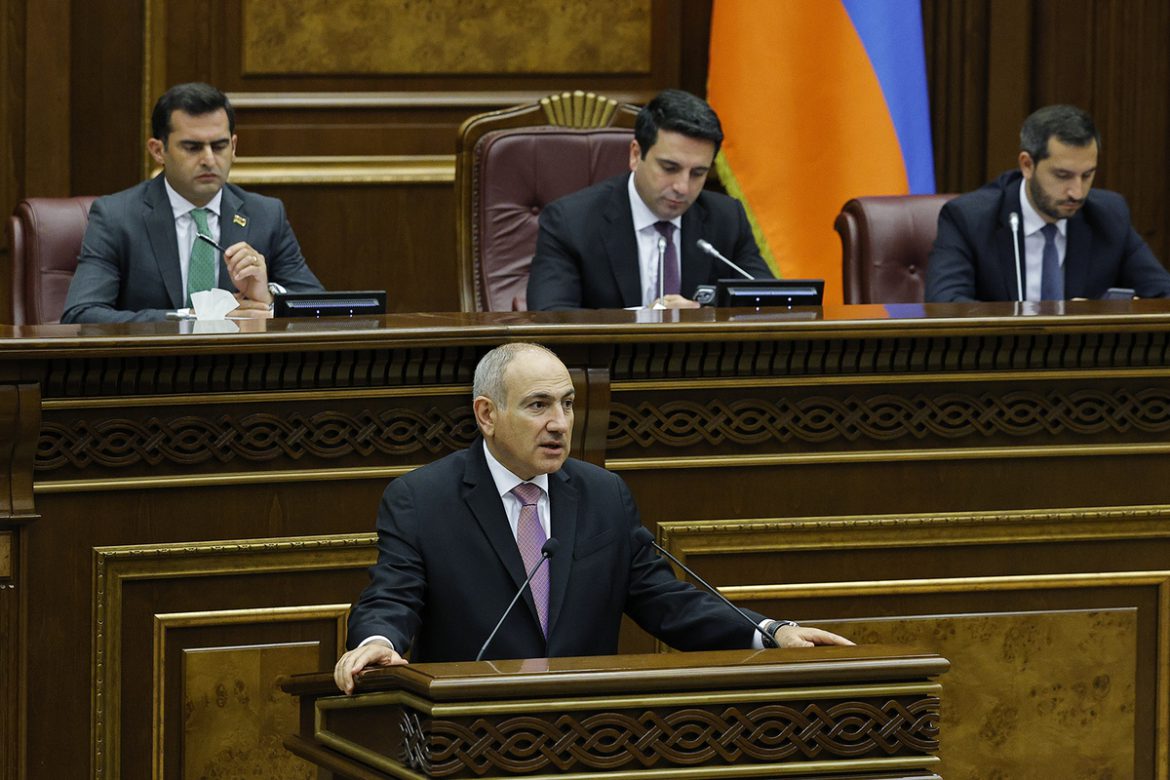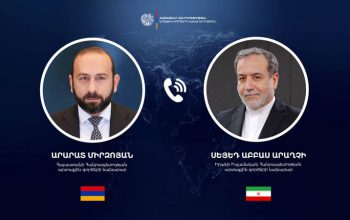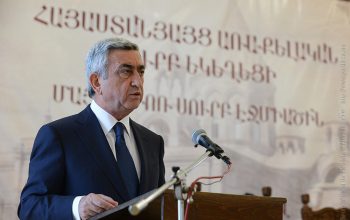By A Concerned Armenian Citizen
Prime Minister Nikol Pashinyan’s recent address to the Armenian Parliament, in which he astonishingly claimed that “we have not lost Artsakh, but found the Republic of Armenia,” is not only absurd in its logic, but also deeply unpatriotic and dangerously treacherous. Such a statement, in the face of national tragedy, not only mocks the collective grief of the Armenian people but reflects a distorted, revisionist philosophy that seeks to rebrand catastrophic failure as visionary success.
Pashinyan’s attempt to philosophize the loss of Artsakh as a “gain” for Armenia’s independence relies on a false dichotomy—the illogical premise that the existence of Artsakh and the sovereignty of Armenia are mutually exclusive. This is factually and historically incorrect. For decades, Armenia existed as a sovereign nation while supporting the people of Artsakh in their struggle for self-determination. To suggest that recognizing Azerbaijani sovereignty over Artsakh somehow secures Armenia’s own independence is an outrageous betrayal of both historical reality and national integrity.
The Prime Minister further claims that previous political forces used Artsakh as a “noose” around Armenia’s neck to prevent its development. This statement commits a straw man fallacy, misrepresenting the motivations of previous governments and the broader Armenian public. Supporting Artsakh was never about weakening Armenia; it was a moral and strategic imperative grounded in national unity, historical justice, and security. By framing the support of Artsakh as an impediment, Pashinyan not only distorts past policies but delegitimizes decades of sacrifice by both soldiers and civilians.
Moreover, calling the aftermath of the 2020 war—a conflict that resulted in the displacement of 150,000 people, over 4,000 deaths, and the disappearance of 200 individuals—a “success story” is not only intellectually dishonest, but morally reprehensible. It is a red herring used to distract from his own failures in diplomacy, security, and crisis management. This is not leadership—it is evasion.
His pride in being the first Armenian leader to “recognize the territorial integrity” of Azerbaijan, including Artsakh, is the ultimate act of national betrayal. This act not only tramples on the principle of self-determination for the Armenian people of Artsakh but also cedes centuries of cultural, religious, and historical connection to that land. No genuine patriot could celebrate such recognition while thousands of Armenians are stripped of their ancestral homes.
Pashinyan insists that Armenia is now “more independent and sovereign than ever before.” This statement is riddled with circular reasoning. Independence cannot be measured by words alone; it is measured by the state’s ability to protect its people, maintain territorial integrity, and uphold national dignity. Under his leadership, Armenia has lost critical ground on all three fronts.
In parallel, Pashinyan’s government has gone as far as to undermine diaspora efforts and international advocacy for Artsakh by obstructing formats like the Swiss initiative, as highlighted by Gegham Stepanyan. Rather than bolster Armenia’s global position, the government has chosen a policy of capitulation and retreat—isolating those who still fight for justice.
Even more alarming is the government’s withdrawal of humanitarian aid to forcibly displaced Artsakh Armenians, including the cancellation of the vital 40,000+10,000 dram support program and the failure to provide sufficient housing. This is not just poor governance—it is a violation of fundamental human dignity. How can a leader claim moral authority or national strength while abandoning his most vulnerable citizens?
Finally, Pashinyan’s belief that Armenia has never been more “prepared” for regional challenges is either delusional or dishonest. Azerbaijan’s increasing demands, including the “Zangezur corridor,” illustrate the opposite. Armenia has never been more diplomatically isolated or militarily vulnerable.
In conclusion, Pashinyan’s statements on June 19 reflect a dangerous fusion of revisionism, defeatism, and moral detachment. His remarks are not only absurd in their reasoning and fallacious in logic, but betray the fundamental values of patriotism, memory, and responsibility. No political philosophy can sanitize the betrayal of a nation’s sacred duty to its people. In rewriting failure as triumph, Pashinyan is not leading the nation—he is dismantling its soul.




